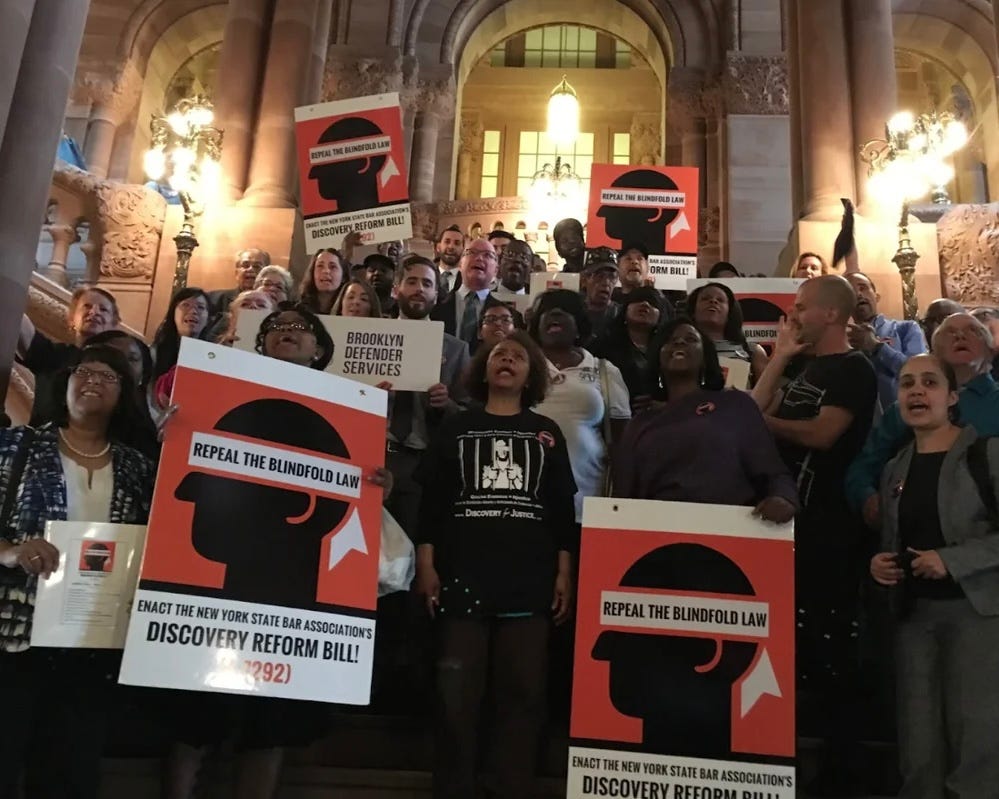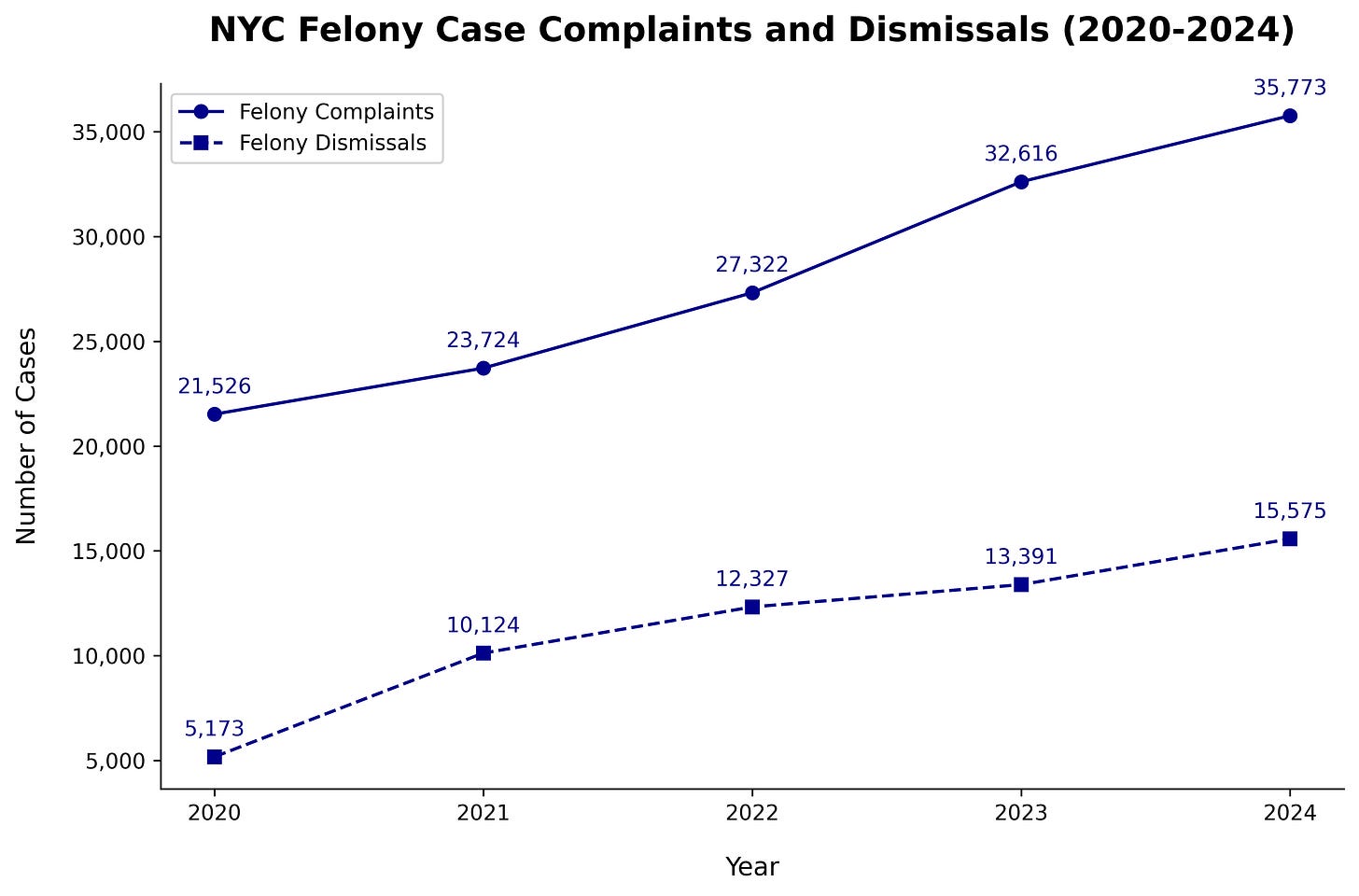Explainer: Does New York’s Discovery Law Strengthen or Undermine Justice?
As New York’s controversial discovery law gains renewed scrutiny, the battle over the future of the state's criminal justice system is reaching a boiling point.
A recent domestic violence case in Manhattan was dismissed by the court, not due to lack of evidence, but because of a procedural issue under New York’s discovery law. Prosecutors handed over 70 pieces of evidence to the defense, but because of a single missing document that wasn’t disclosed in time (an arresting officer’s disciplinary record), the judge had no choice but to throw out the case.
The decision has reignited debate over New York’s discovery laws, with some arguing they are necessary for fairness and transparency in the criminal justice system and others believing they cause harm to victims and the public by turning the courts into a revolving door for criminals.
With public fears over crime still high and court backlogs growing, Governor Hochul and prosecutors are pushing for urgent changes. Public defenders and reform advocates are fighting back, however, insisting that eroding these laws could bring back the days of wrongful convictions and secretive prosecutions.
What is New York’s Discovery Law?
Before 2020, New York actually had one of the most restrictive ‘discovery’ systems in the country. Under the past “blindfold law,” prosecutors were able to withhold most evidence until just before trial, sometimes making it difficult for defendants to make informed decisions on plea deals or preparing a strategy for trial.
That changed with the 2019 criminal justice reform, also known as Kalief’s Law. The law was named after Kalief Browder, a Bronx teenager who spent three years in jail without trial over a stolen backpack charge before the case was eventually dismissed.
The law now requires prosecutors to turn over most evidence within 35 days of arraignment (or 20 days if the defendant is in custody). This includes police reports, witness statements, body-camera footage, and police officer disciplinary records.
“For decades, prosecutors would withhold evidence in a criminal case until the day of trial or never share it at all. This led to wrongful convictions, coerced plea agreements, prolonged pretrial detention, and devastating harm to individuals, families, and entire communities,” said the coalition Brooklyn Defenders in a statement.
Balancing Fairness and Case Dismissals
While defense attorneys emphasize that the new law ensures a fair trial, some prosecutors argue that the tight deadlines and mandatory dismissals for non-compliance are having disturbing consequences.
In Manhattan, the rate of dismissed criminal cases increased from 28% in 2019 to around 50% by 2023.
Advocacy groups for domestic and sexual violence survivors have voiced alarm at the number of cases dismissed for mere technicalities, pointing out that when a case is thrown out, orders of protection lapse and abusers may walk free, leaving victims vulnerable.
District Attorney offices and police departments have struggled administratively to meet the law’s requirements. The need to gather every conceivable piece of material related to a case within a month or so has, unsurprisingly, led to significant logistical challenges.
"Domestic violence survivors are being denied justice and much-needed orders of protection by flawed discovery laws," said Manhattan District Attorney, Alvin Bragg, regarding the recently dismissed domestic violence case.
Discover Law Reform Proposals
In response to growing concerns, Governor Hochul has proposed adjustments to the discovery law as part her 2025 Executive Budget, these include:
Granting judges more discretion so that cases are not automatically dismissed for minor discovery violations.
Extending deadlines for prosecutors in cases involving large volumes of evidence.
Clarifying what must be disclosed to ensure that only relevant evidence is required
“My common sense proposal to streamline New York's discovery laws will close fatal loopholes that have delayed trials and led to cases being thrown out on minor technicalities,” said Governor Hochul.
Prosecutors and law enforcement officials support these adjustments, arguing they would help prevent dismissals based on procedural technicalities. Public defenders and reform advocates remain cautious that these changes could erode protections meant to ensure defendants receive a fair trial.
With crime an ever-pressing issue for New Yorkers, the battle over discovery laws is steadily heating up. Lawmakers will have to decide on whether the current discovery laws are worth fighting to preserve or if it’s time to amend them altogether.



